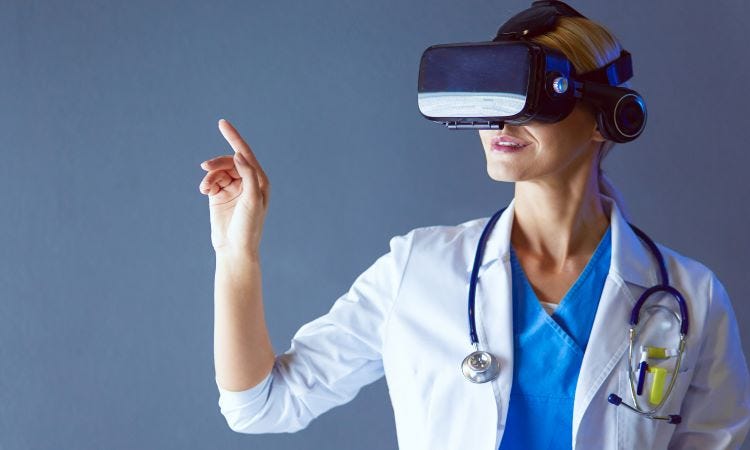Remote diagnosis and treatment are possible through virtual consultations, which medical practitioners can perform with patients via the Metaverse. Patients who live in rural or underserved locations may find this to be of particular help.
Medical education: In a secure virtual setting, medical experts and students can practise procedures and surgeries by using the Metaverse. This can assist in enhancing their abilities and understanding prior to dealing with actual sufferers.
Therapy and rehabilitation: Patients receiving therapy or rehabilitation can be placed in virtual surroundings created by the Metaverse. This has the potential to improve patient outcomes by making the treatment process more interactive and interesting for the patients.
Medical research: By conducting virtual trials and simulations in the Metaverse, medical researchers can test novel medications and therapies in a safe setting.
It should be remembered, nevertheless, that the Metaverse is still a relatively new technology and that its effects on the medical industry have not yet reached their full potential. It is imperative that the application of technology is guided by moral and legal principles.

Technologies used in healthcare in the Metaverse
Using VR in Healthcare
There is ongoing discussion among certain individuals on the potential impact of virtual reality headsets, including whether or not they will reach remote areas and populations that genuinely require medical care. However, using these headsets for training purposes in hospitals and educational institutions is one of their benefits.
North America is expected to produce the largest percentage of sales during the forecast period, according to a regional analysis. The area is expected to witness a notable concentration of enterprises focused on the metaverse, rapid growth of healthcare infrastructure, and the integration of AR and VR platforms into the healthcare sector. Funding for the development of fresh, creative augmented reality goods and apps as well as improvements in hardware and software will increase.
Blockchain in healthcare for the Metaverse
Blockchain technology is not required for a Metaverse to function, but it would be crucial for the Metaverse’s economy. For instance, transferring a large amount of patient data from one Metaverse to another would be necessary in the healthcare industry. To enable such interoperability, blockchain technology would be necessary.
Healthcare in the Metaverse through artificial intelligence (AI)
Chatbots are one of the most common applications of AI in metaverse healthcare. You most likely would have spoken with a robot that responded to your inquiry. It would be difficult for a healthcare organisation to initially deploy human resources in a metaverse for a receptionist since it would take a lot of time to train the person who would be handling it.
The Metaverse is a virtual environment that can be enhanced with artificial intelligence to make it more accessible and inclusive for all users, including those with disabilities. Artificial Intelligence (AI) has multiple applications, including computer vision, speech recognition, augmented reality, natural language interfaces, and translation.
The user experience will be more convenient as a result of being able to communicate with the Metaverse through photos, videos, and their local language. AI can also be applied in the Metaverse through digital avatars.
Conclusion
In order to provide more realistic and captivating metaverse experiences, new technologies are always being created and these ones are always changing. All things considered, the Metaverse holds great promise for transforming medical education, research, and service delivery, improving patient outcomes and facilitating more effective and economical healthcare delivery.
Sapizon is a Metaverse development company in Dubai that builds Metaverse solutions with relevant tools and expertise. We are among best metaverse company that give transformative experiences to the users. we create user-friendly applications and our offer enhanced functionalities
and drive more immersive experiences.


No comments:
Post a Comment